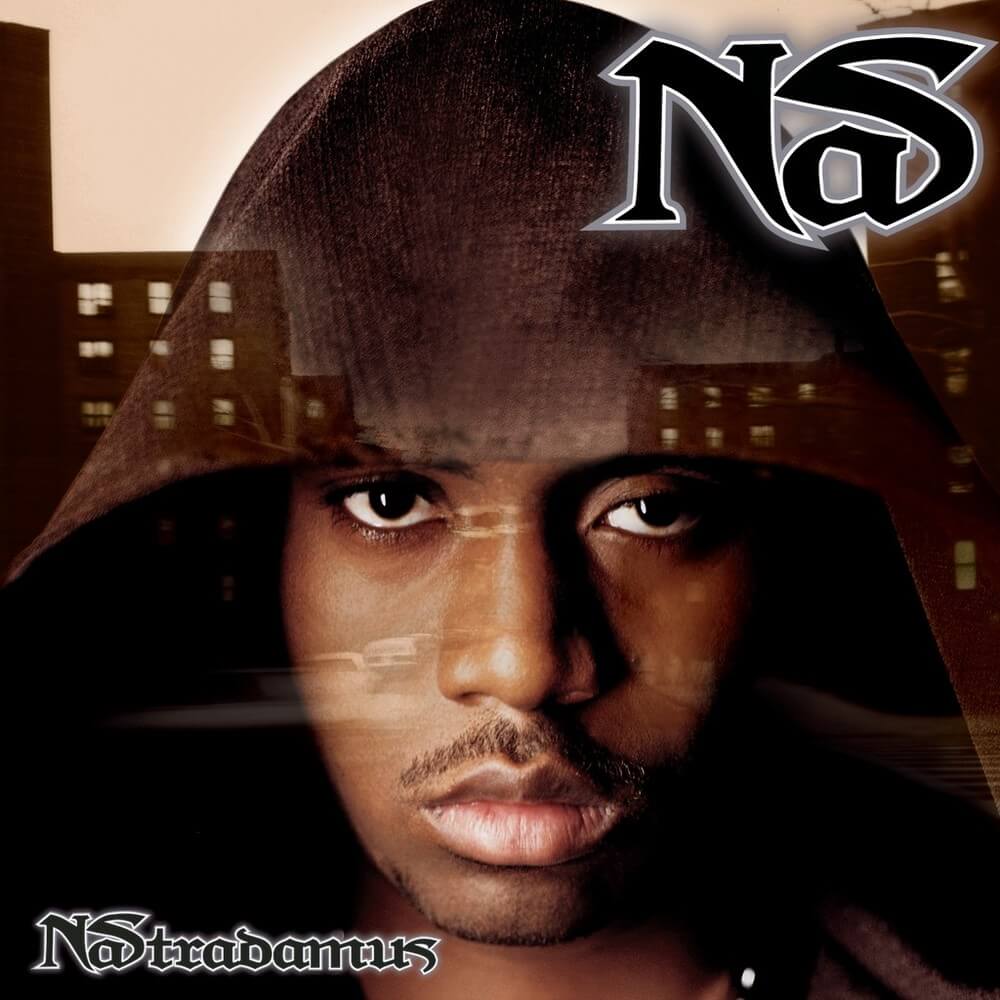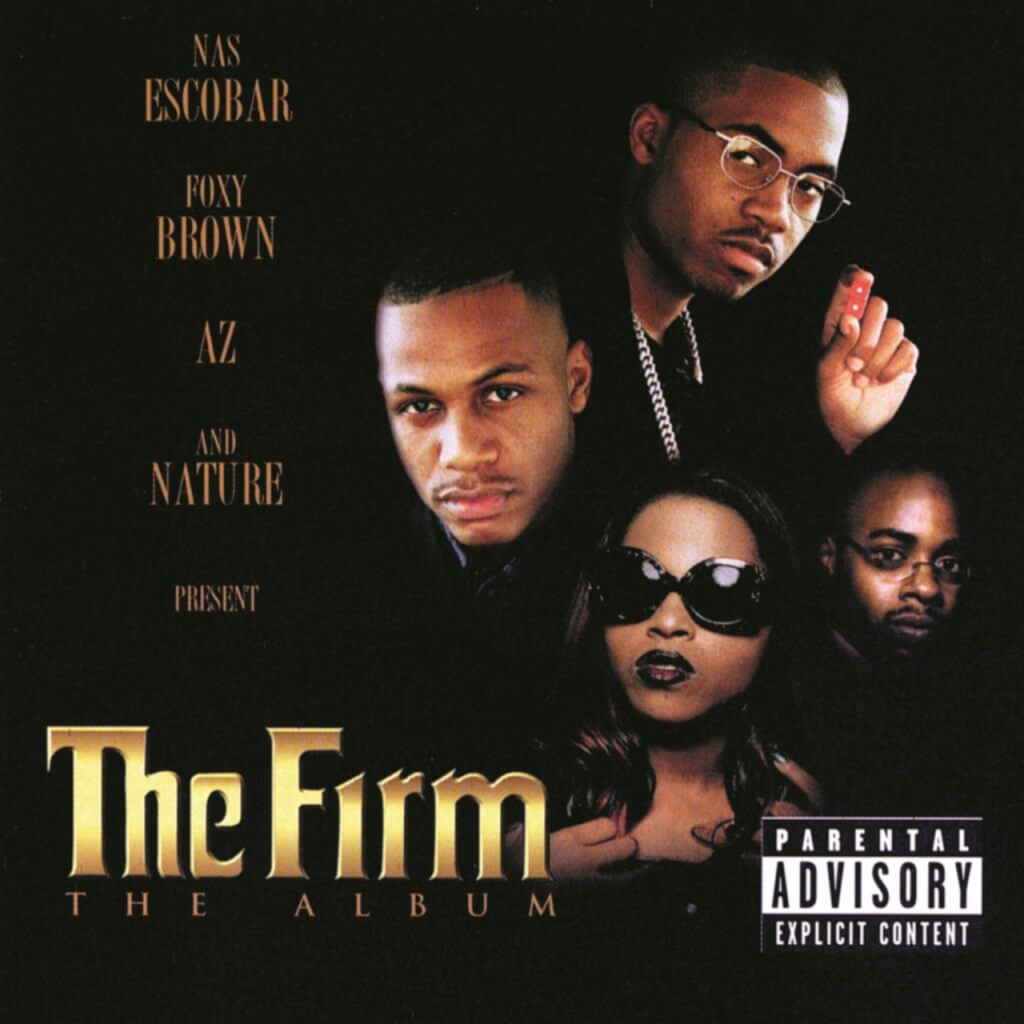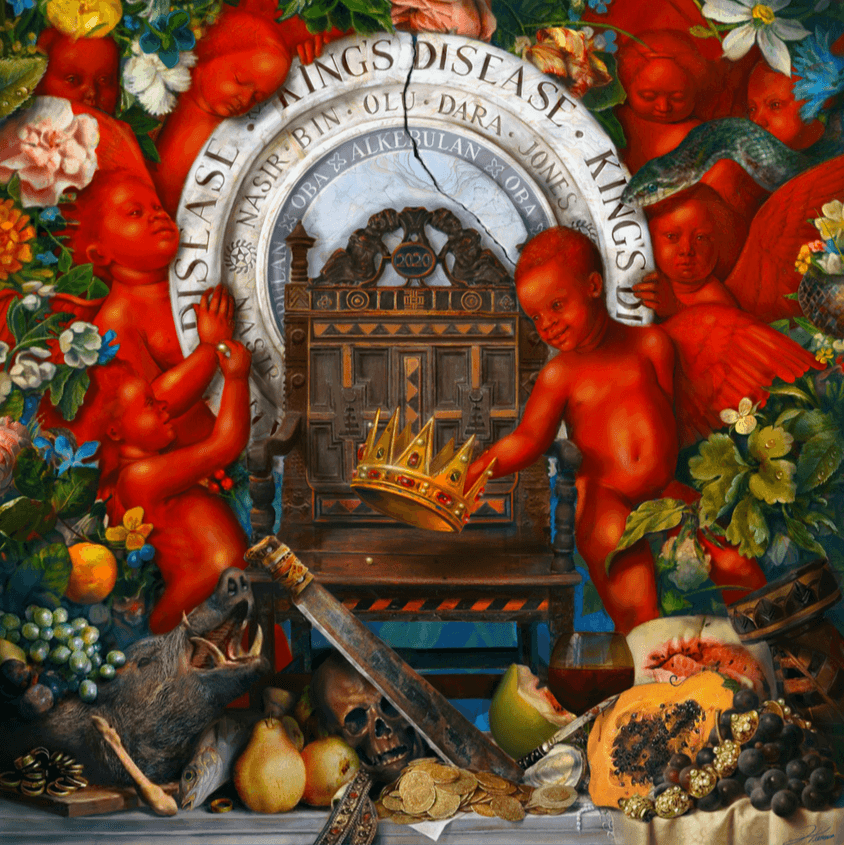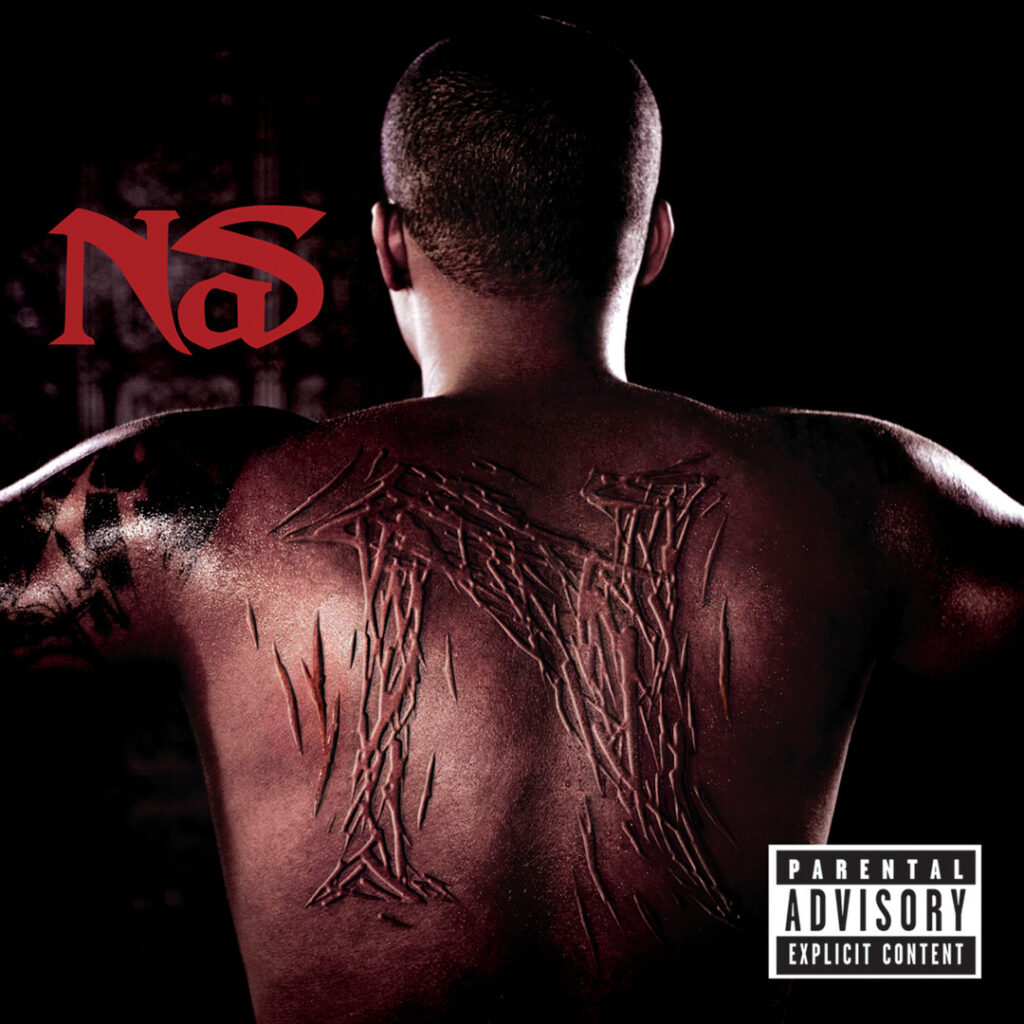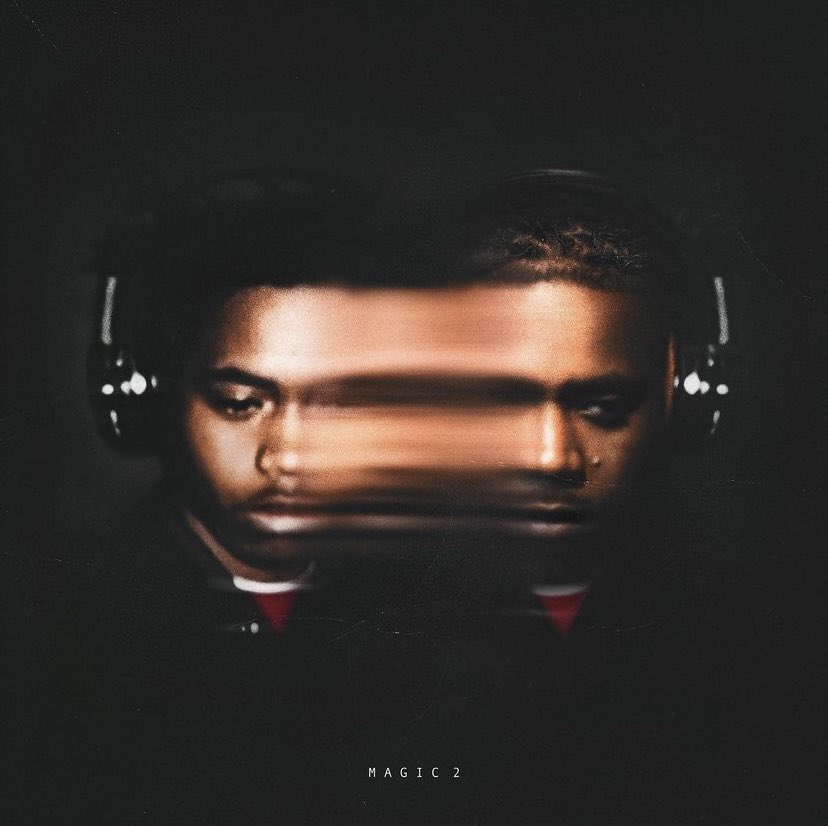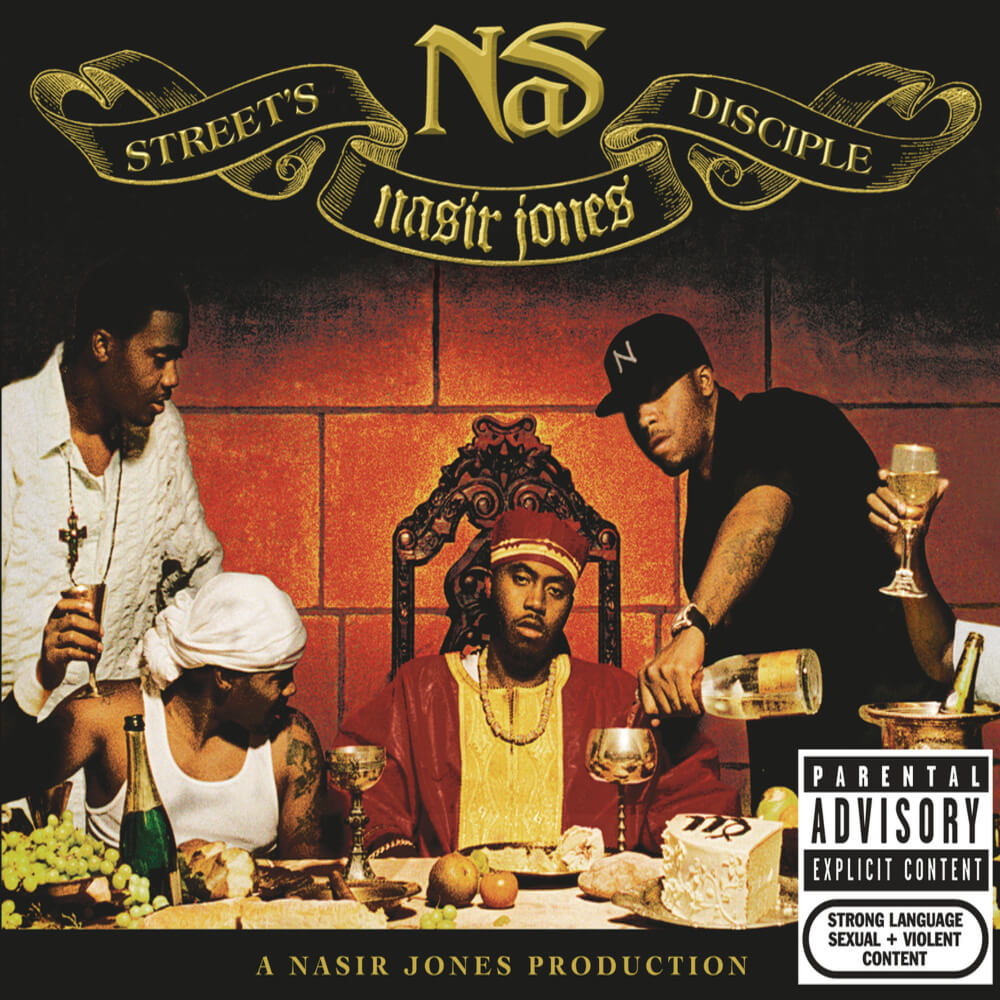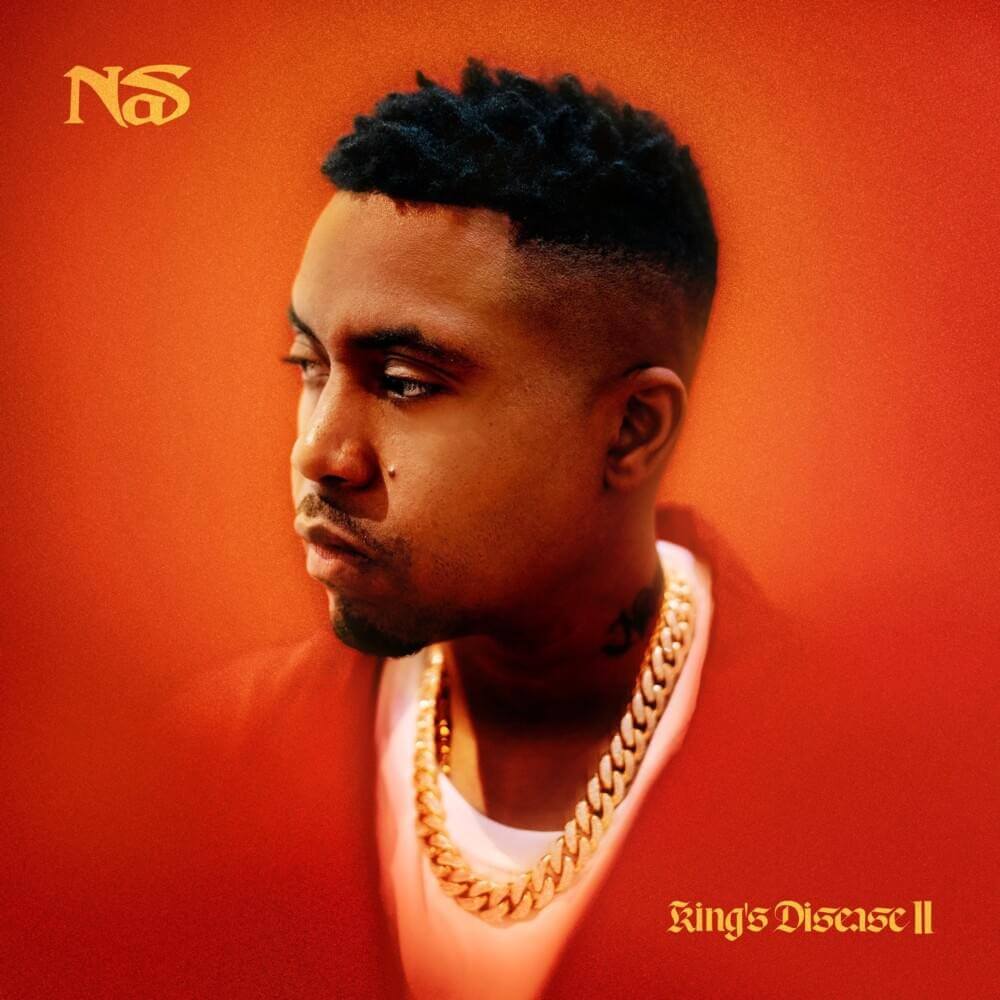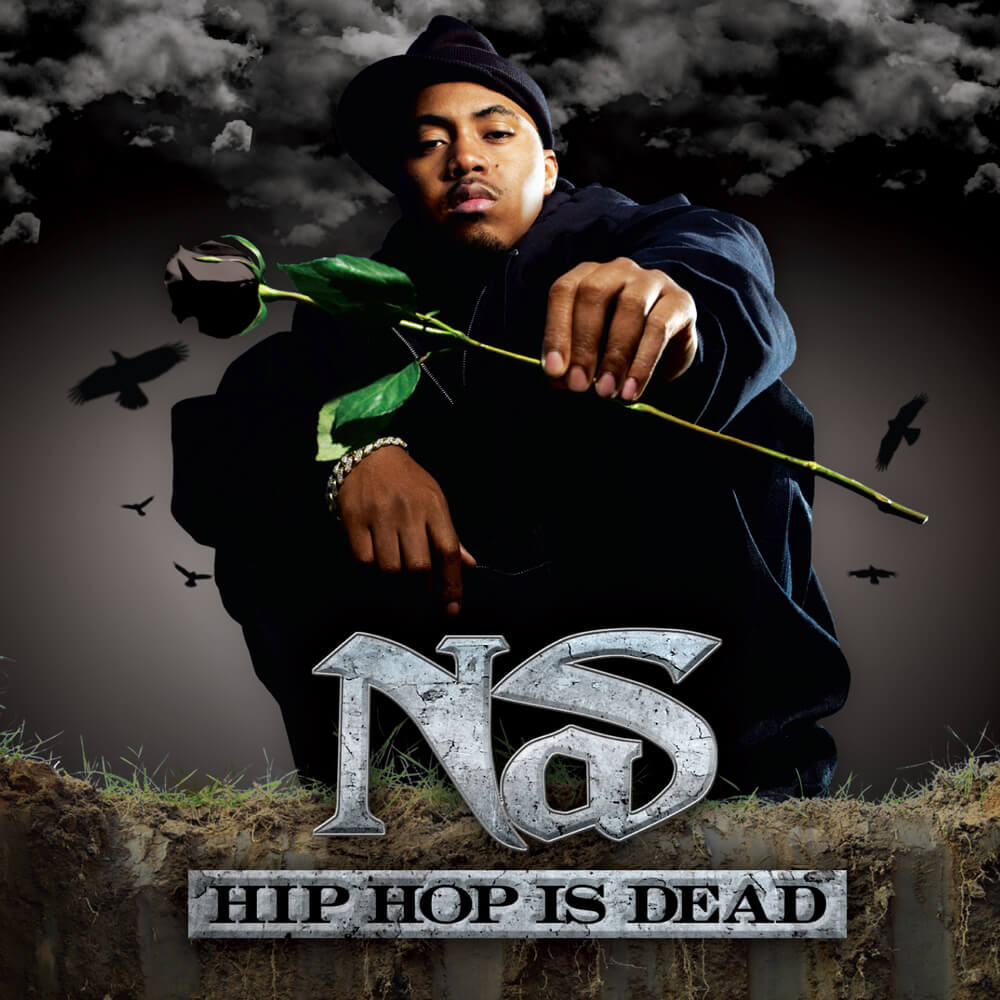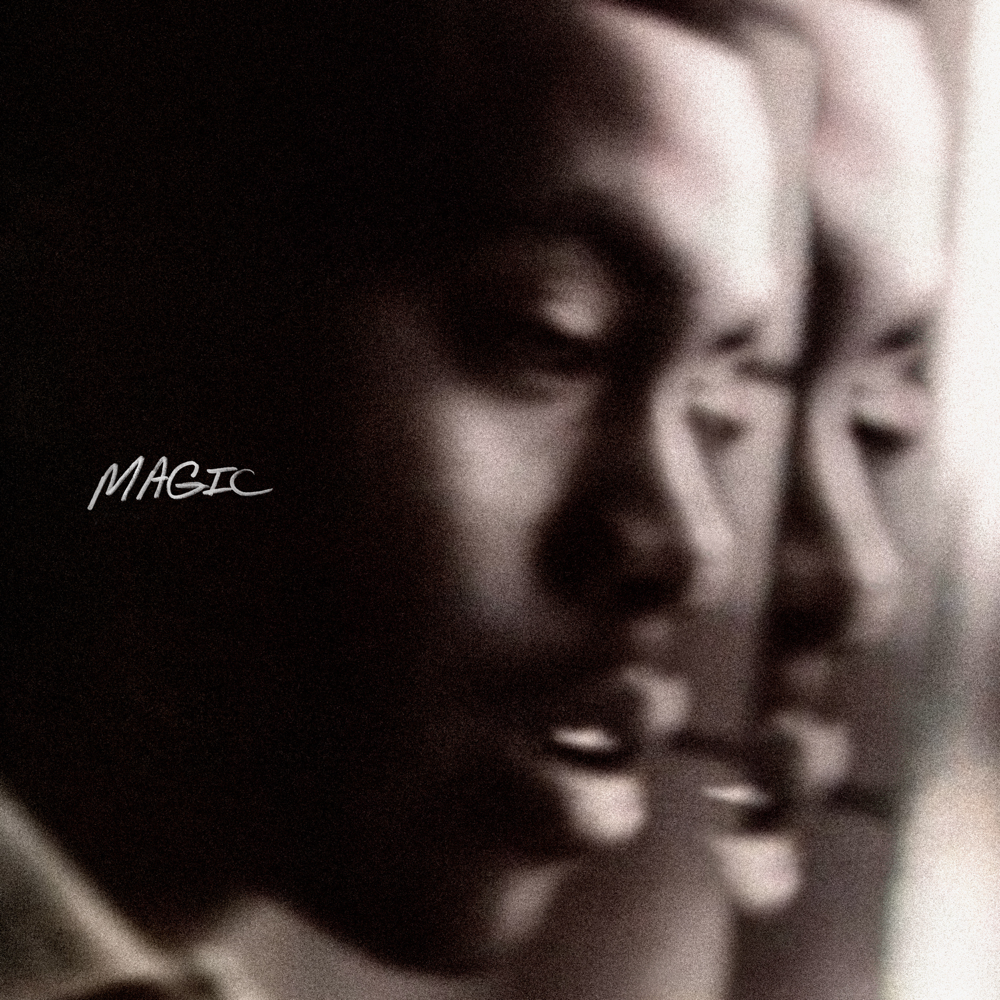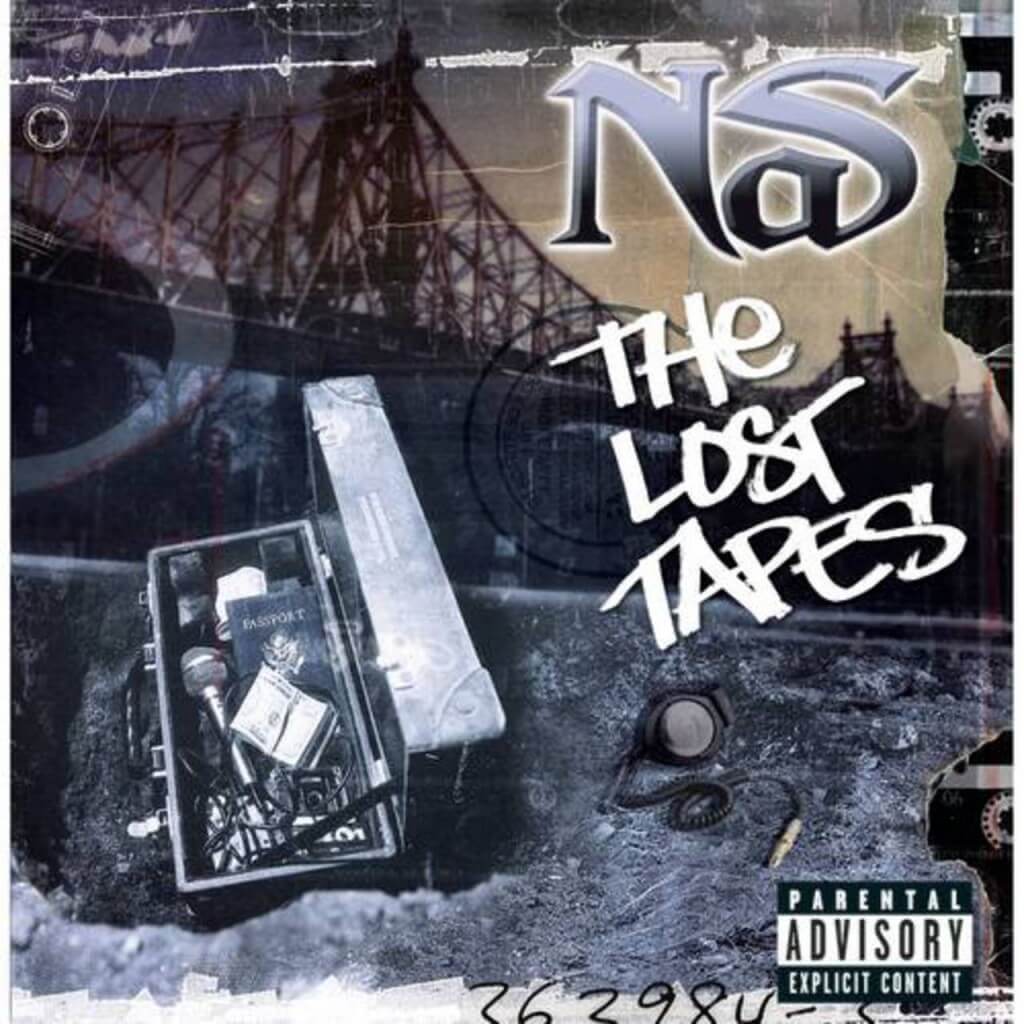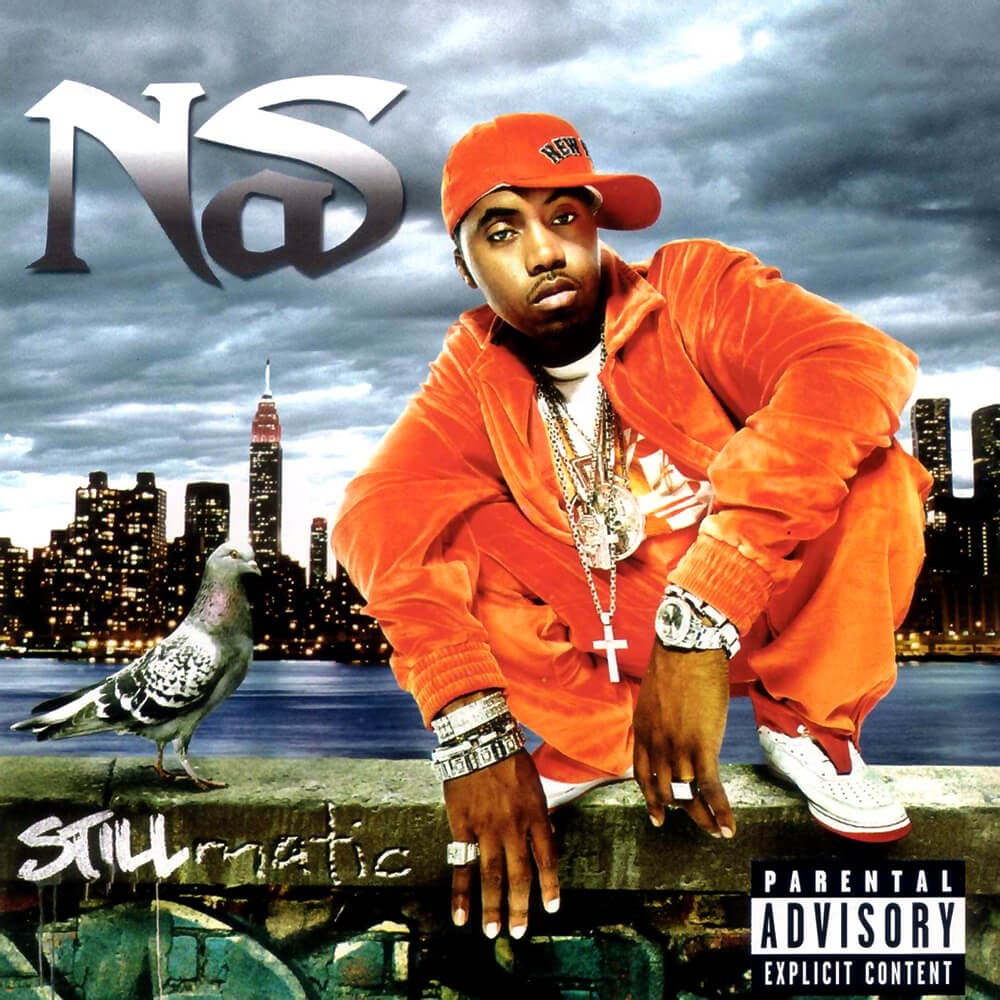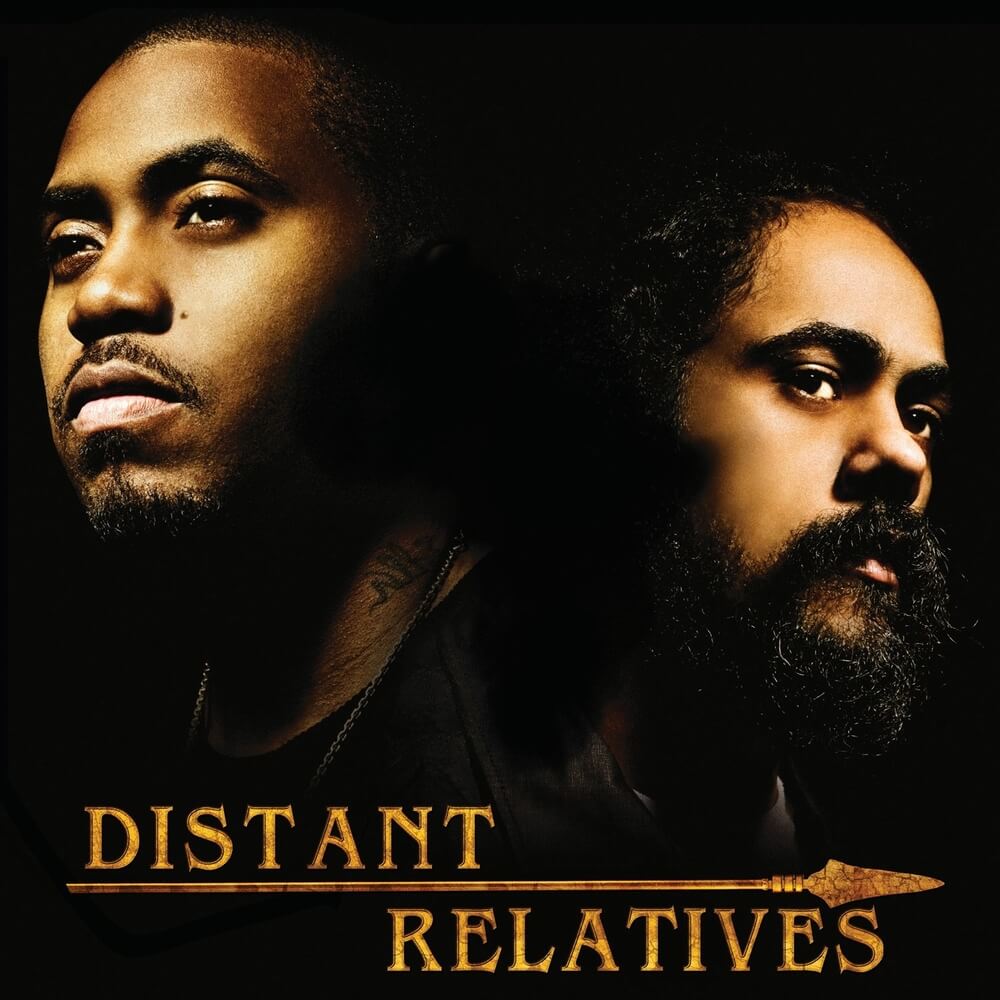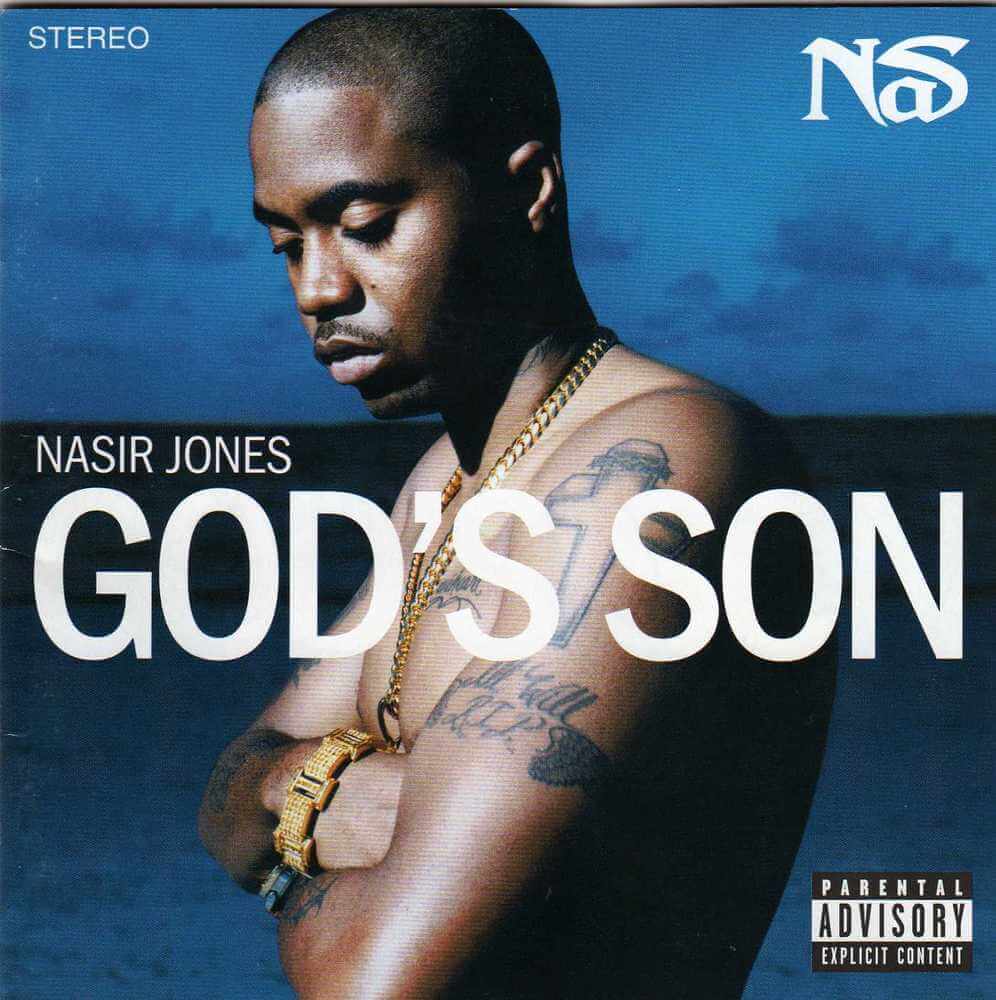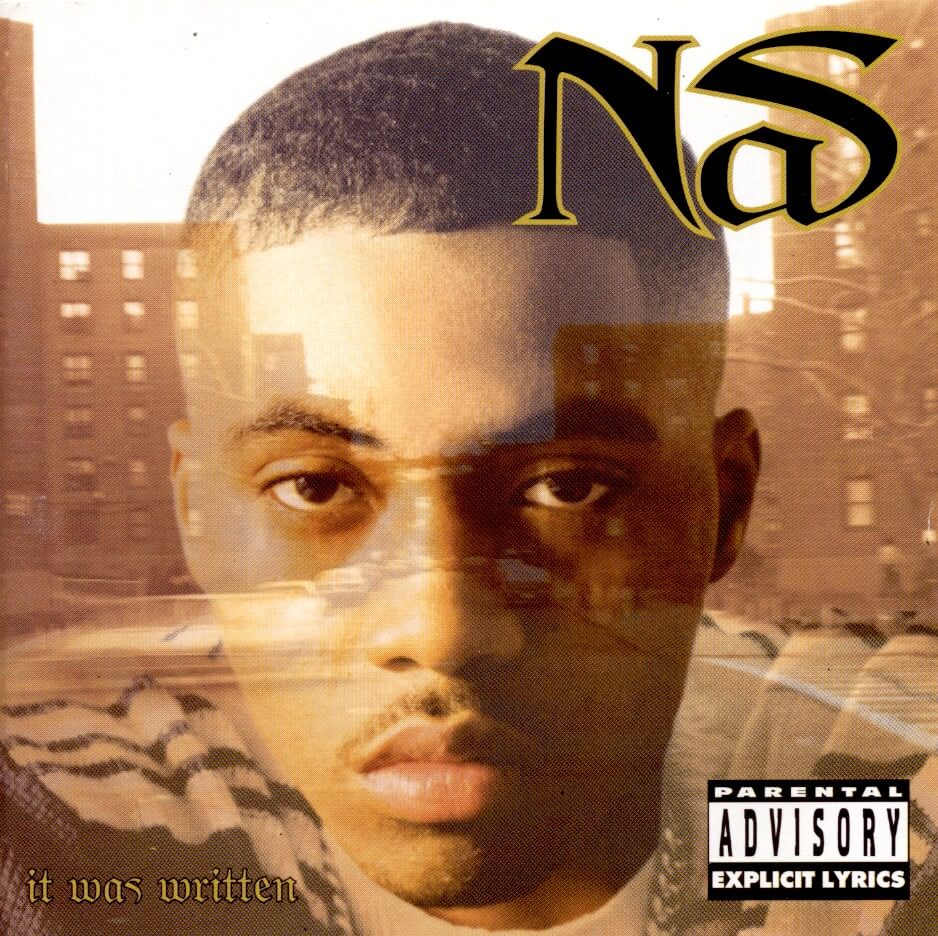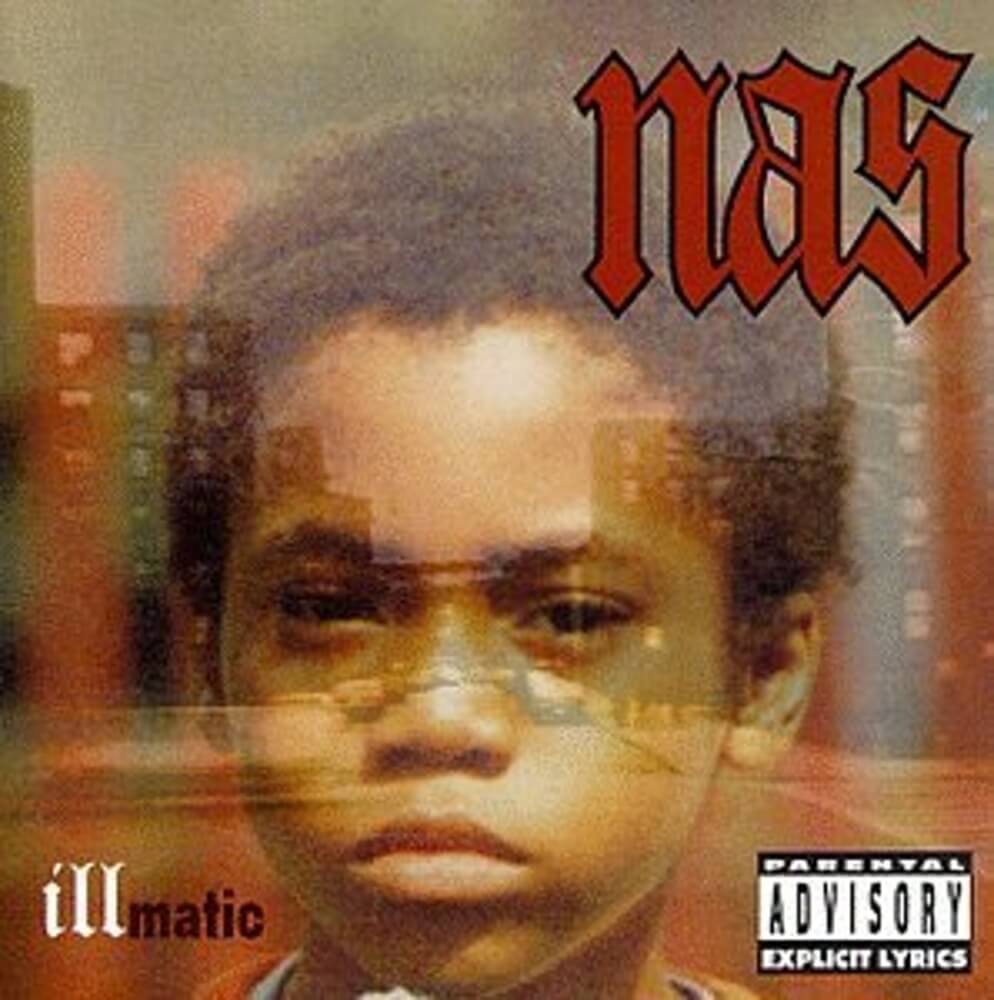
Nasir bin Olu Dara Jones, widely known as Nas, has a career that feels like an unbroken thread connecting the origins of Hip Hop to its modern form. Emerging from Queensbridge, the largest public housing complex in North America, Nas has always been able to transform the weight of his environment into something deeply lyrical and unforgettable. His debut on Main Source’s “Live at the BBQ” was a glimpse of what was to come: precise, sharp, and filled with a voice that felt like it had lived a thousand lives. When his debut album Illmatic was released in 1994, Nas had redefined what was possible in rap.
Illmatic created entire worlds through its words and sounds, pulling listeners into the essence of Queensbridge life. There was nothing glossy or polished about it; the beats carried the dusty textures of the streets, while Nas’ voice cut through with an honesty that felt both poetic and raw. His flow moved like a craftsman at work, blending intricate patterns with an instinctive sense of rhythm that elevated every verse.
But Illmatic was just the beginning. Nas’ catalog is vast, reflecting an artist who is always in motion. Albums like It Was Written introduced a more cinematic approach, with layered production and an ear for broader appeal. Later records such as Stillmatic and Life Is Good brought renewed fire, with Nas tackling external conflicts and personal reflection, his words carrying precision and passion.
Ranking Nas’ albums isn’t an easy task because each project feels like a snapshot of an artist evolving in real-time. Some are drenched in nostalgia, drawing from the foundations of New York’s golden era, while others show him experimenting, chasing new sounds and ideas. And while his style has shifted and grown over the years, the heart of his artistry—a master storyteller with an unmatched gift for language—remains consistent.
This consistency, however, doesn’t mean his music is predictable. Each album offers its own rhythm, its own tone, and its own point of focus, making comparisons all the more difficult. To order these albums is to dive into decades of music that reflect not only one man’s growth but the evolution of an entire genre. Whether revisiting his earliest masterpieces or exploring his recent work, what becomes clear is that Nas continues to build on a foundation that began in the streets of Queensbridge and has expanded to something much larger.
In creating this ranking, we considered not only Nas’ solo studio albums but also his collaborative projects and The Lost Tapes compilations. Let’s get into it!
21. The Lost Tapes 2 (2019)
The Lost Tapes 2 (2019) offers a glimpse into Nas’s vault of unreleased material from his Def Jam years, but it lacks the cohesion and magic of its predecessor. While the first Lost Tapes was a concise and focused collection, this sequel feels scattered, pulling from a wide span of sessions with uneven results.
The album starts strong with “No Bad Energy,” where Nas flows over an atmospheric beat that exudes maturity and reflection. Tracks like “Queensbridge Politics” tap into nostalgia with vivid storytelling about Prodigy and Nas’s roots, while “Lost Freestyle” shows flashes of brilliance, pairing Nas’s unfiltered delivery with Statik Selektah’s crisp production. However, moments like “Tanasia” and “Jarreau of Rap” fall short, with overworked concepts and lackluster hooks that fail to leave a lasting impression.
So there are a few good moments, but they’re surrounded by songs that feel more like unfinished sketches than polished cuts. The production varies greatly too, from soulful loops to beats that feel dated or overly busy. For diehard fans, The Lost Tapes 2 holds a few hidden gems, but it doesn’t reach the high bar set by Nas’s best work. Instead, it ended up as a mixed bag of untapped potential. | 5/10
20. Nasir (2018)
Nasir (2018) had all the ingredients for something special: Nas, one of Hip Hop’s greatest, paired with Kanye West during a prolific production streak. But what could’ve been a moment instead feels unfinished. The seven tracks—a format Kanye championed for his G.O.O.D. Music rollout—don’t give Nas the space to explore the weighty topics he touches on, leaving the album feeling more like a rushed experiment than a cohesive body of work.
The production has flashes of brilliance, as expected from Kanye. “Cops Shot the Kid” pairs a relentless Slick Rick sample with sharp commentary on police violence, standing out as the album’s most striking track. “White Label” carries a regal energy, with Nas finding a rhythm that matches the luxurious beat. But elsewhere, the beats feel underdeveloped, and Nas’s verses range from thought-provoking to oddly disjointed, as on “Not for Radio,” where conspiracy theories overshadow moments of clarity.
With its short runtime, every track needed to hit, but songs like “Bonjour” and “Simple Things” feel like filler. For an artist known for depth and precision, Nasir comes off as a missed opportunity, more notable for its potential than its execution. | 5/10
19. Nastradamus (1999)
Nastradamus (1999) is often remembered as a misstep in Nas’s otherwise celebrated career, and it is easy to see why. Released the same year as I Am…, the album feels rushed and uneven, with moments of brilliance scattered between questionable choices. It’s an album caught between intentions, shifting from reflective street narratives to misguided attempts at radio-friendly hits.
Tracks like “Life We Chose” and “God Love Us” carry the thoughtful lyricism Nas is known for, offering glimpses of the introspection that defined his earlier work. “Project Windows,” featuring Ronald Isley, is a standout, its soulful undertone paired with vivid storytelling about urban struggle and resilience. However, these moments are undercut by weak songs like “Big Girl” and the clunky club track “You Owe Me,” featuring Ginuwine, which feels out of place.
Production-wise, Nastradamus leans on familiar but uninspired beats, leaving some tracks feeling flat or unfinished. There are flashes of energy, particularly on “Come Get Me,” where Nas sounds focused and ready for battle, hinting at the sharpness that would later define his feud with Jay-Z. Still, the album struggles to maintain a cohesive tone, feeling more like a collection of ideas than a fully realized project. While not without merit, it is one of Nas’s weaker efforts. | 5.5/10
18. The Album (1997, as part of The Firm)
The Album by The Firm (1997) was meant to be a Hip Hop powerhouse. With Nas, AZ, Foxy Brown, and Nature, and production help from Dr. Dre, it carried lofty expectations. Built around the Mafioso theme Nas leaned into on It Was Written, the album is stylish but often feels weighed down by its ambition.
The standout track, “Phone Tap,” delivers a paranoid, cinematic feel, with Dre’s minimalist production perfectly suited to the concept of wiretapped gangsters. Elsewhere, though, the beats feel overly polished, lacking the grit that made these artists’ solo work so compelling. Tracks like “Firm Biz” aim for crossover appeal with mixed results, trading street-level authenticity for shiny synths and glossy hooks.
The chemistry between the artists is undeniable at times, but the absence of Cormega, who was replaced by Nature, leaves a sense of what could have been. While moments of the album are entertaining, its reliance on Mafioso tropes feels overdone, especially in the rapidly shifting Hip Hop landscape of the late ’90s. Despite its chart-topping debut, The Album struggles to live up to the star power behind it, ultimately feeling like a missed opportunity rather than the game-changer it was intended to be. | 6/10
17. King's Disease (2020)
King’s Disease (2020) finds Nas teaming up with producer Hit-Boy for an album that feels both reflective and contemporary. Built on a foundation of soulful, mid-tempo instrumentals, the project strikes a balance between Nas’s signature introspection and his desire to connect with a new generation of listeners. At its best, the album feels like a conversation—measured and confident, with Nas offering wisdom earned through decades in the game.
Tracks like “Blue Benz” and “10 Points” highlight his storytelling ability, weaving vivid memories of his come-up with broader life lessons. “Full Circle” brings a nostalgic reunion with AZ, Foxy Brown, and Cormega, layering the track with smooth chemistry and a nod to their shared history.
At only 38 minutes long, there’s no room for error, yet some tracks—like the autotune-laden “Replace Me” and “Til The War Is Won”—feel out of place and dilute the overall experience. Longtime fans who’ve followed Nas from the beginning will find these rap-sung hooks frustrating, and the attempts to court newer audiences might alienate the core—listeners like us who hate auto-tune will surely turned off by these moments.
But despite occasional missteps, King’s Disease is an OK Nas album. It’s a mature project, steeped in self-awareness, where Nas navigates legacy, culture, and growth with the skill of an artist who still has something meaningful to say. | 6.5/10
16. Untitled (2008)
Untitled arrived like a raw nerve exposed, a musical statement that refuses to whisper when it could scream. Nas drops into the album with “Queens Get the Money,” a haunting track where Jay Electronica’s skeletal piano creates a ghostly backdrop for his razor-sharp words. It’s an opening that feels like a cold breath down your spine – urgent, uncomfortable, impossible to ignore.
The record wrestles with America’s racial wounds, but not always elegantly. Nas swings between razor-sharp social commentary and radio-friendly tracks that feel like nervous compromises. “Sly Fox” jabs at media manipulation with a rock-infused edge that doesn’t come off, while “Fried Chicken” uses metaphor to dissect deeper cultural pain.
What saves the album from becoming a scattered political pamphlet is Nas’s genuine rage and intelligence. When he connects – like on “N.I...E.R. (The Slave & The Master)” – the music becomes a blunt instrument of truth, cutting through polite conversation about race in America.
The beats often feel like afterthoughts, generic backdrops that don’t match the intensity of Nas’s lyrical ambition. It’s an album more about message than musicality, more about throwing punches than creating a smooth listening experience.
Untitled isn’t perfect. It’s messy, contradictory, occasionally frustrating. But it’s also a document of an artist refusing to stay quiet, choosing instead to throw his voice against the walls of comfortable silence. | 6.5/10
15. Magic 2 (2023)
Magic 2 (2023) is a swift, focused effort that finds Nas continuing his fruitful collaboration with Hit-Boy. Clocking in at just over 30 minutes, the album is brief but self-assured, with Nas weaving sharp lyricism across a mix of polished beats. From the heavy bassline of “Abracadabra” to the layered soul sample on “Black Magic,” the production provides punch and depth, giving Nas plenty of room to flex his storytelling and wordplay.
Tracks like “Bokeem Woodbine” and “Earvin Magic Johnson” stand out, pairing vivid imagery with clever turns of phrase. There’s a confidence in Nas’s delivery here, whether he’s boasting or reflecting. The project has a clean, modern feel, yet still nods to his roots, balancing hard-hitting bravado with moments of introspection.
At its best, Magic 2 feels like a celebration of Nas’s consistency, with beats and bars in lockstep. While its brevity might make it feel lightweight, it doesn’t waste time on filler, keeping the energy sharp from start to finish. It’s another example of the synergy between Nas and Hit-Boy, proving their streak of strong collaborations shows no sign of slowing down. | 6.5/10
14. I Am... (1999)
Nas’s I Am… (1999) walks a line between ambition and compromise, offering glimpses of brilliance while revealing the challenges of an artist caught between the underground and mainstream. Originally envisioned as a sprawling double album chronicling Nas’s life from birth to rebirth, the project was reshaped after leaks forced him to scale back. What remains is a mixed collection, with highs that stand tall alongside his best work and lows that feel like filler.
The album opens strong with N.Y. State of Mind Pt. II, where Nas revisits the gritty terrain of his earlier work. Premier’s haunting piano loop and Nas’s sharp imagery create a sequel that feels heavier, as if time has sharpened the edges of his city’s chaos. Tracks like Nas Is Like elevate the record further, with Premier delivering a symphonic, almost hypnotic beat that matches Nas’s intricate verses. It’s the kind of song that reminds you why Nas’s voice is still revered in Hip Hop.
But elsewhere, the cracks begin to show. Tracks like Big Things feel awkward and out of place, with Nas experimenting with a cadence that doesn’t quite fit. Songs like Dr. Knockboot and Money Is My Bitch are playful but lack the depth that makes Nas’s storytelling resonate, plus they have terrible hooks. On the brighter side, Small World and Undying Love showcase his gift for cinematic narratives, weaving tales full of vivid details and sharp twists.
With its blend of thoughtfulness and commercial sheen, I Am feels like an artist straddling two worlds. It’s uneven, but the peaks — when Nas is in full command of his voice and vision — are undeniable. | 6.5/10
13. Magic 3 (2023)
Magic 3 (2023) feels like a reflective victory lap for Nas and Hit-Boy, bringing their collaborative streak to a close on a confident note. Released on Nas’s 50th birthday, the album carries a sense of celebration and wisdom, balancing nostalgic vibes with sharp modern touches. At 45 minutes, it has more room to breathe than its predecessor, Magic 2, allowing for a deeper exploration of both sound and storytelling.
Tracks like “Sitting With My Thoughts” and “I Love This Feeling” are rich with introspection, offering a blend of laid-back production and deeply personal lyrics. On “Based on True Events” and its sequel, Nas flexes his storytelling chops, unraveling vivid tales with precision, while “Japanese Soul Bar” adds an air of mystery with its moody beat and smooth delivery.
Hit-Boy’s production here feels a bit more textured and fitting, leaning on jazzy flourishes and understated melodies that let Nas’s voice and bars carry the weight. The overall tone is mellow but confident, with Nas exuding the energy of an artist who knows exactly where he stands. While it doesn’t hit the peaks of the first Magic or King’s Disease III, Magic 3 is a worthy and thoughtful chapter in an extraordinary run. | 7/10
12. Street’s Disciple (2004)
Street’s Disciple is one of Nas’s most ambitious records, sprawling across two discs and 88 minutes of music. It’s deeply personal, often experimental, and rooted in themes of love, loss, and legacy. The production—primarily handled by Salaam Remi, Chucky Thompson, and L.E.S.—swings between gritty, sample-heavy beats and moments of surprising elegance.
From the jump, Nas sets a serious tone with “A Message to the Feds,” addressing systemic oppression with sharp, urgent bars. Tracks like “American Way” and “These Are Our Heroes” showcase his politically charged side, blending sharp social commentary with smooth, funk-inspired instrumentals.
The album’s length is both its strength and its weakness. On the one hand, Nas covers a wide range of topics: the nostalgic blues-infused “Bridging the Gap” (featuring his father, Olu Dara) and the reflective “Just a Moment” stand out as emotionally rich highlights. But there are missteps too, with tracks like “Me & You” and “The Makings of a Perfect Bitch” feeling unnecessary or undercooked.
What sets this album apart is its willingness to go beyond surface-level storytelling. The “Sekou Story” and “Live Now” sequence sees Nas experimenting with vocal distortion, slipping into the perspective of Scarlett, a fictional female artist. It’s daring, if not fully effective, and adds texture to the album’s narrative.
Ultimately, the too often underappreciated Street’s Disciple feels like an artist reflecting on a decade-long career while wrestling with his place in Hip Hop. It’s imperfect but fascinating, packed with moments of brilliance and enough depth to reward patient listeners. | 7/10
11. King’s Disease II (2021)
King’s Disease II (2021) feels sharper and more grounded than its predecessor. Nas and Hit-Boy refine their partnership here, delivering a fuller, more cohesive project. While the album still experiments with modern sounds, the balance between classic soul influences and contemporary production feels more natural this time around. Nas sounds focused, with his pen as sharp as ever on tracks like “Rare,” “Store Run,” and “Death Row East,” where he revisits moments in Hip Hop history with vivid detail.
The standout “Nobody,” featuring a fiery Lauryn Hill, is a reminder of what happens when legends meet with purpose. Other highlights like “Moments” and “Count Me In” give space for introspection without losing momentum. However, missteps still exist. Tracks like “YKTV,” weighed down by uninspired guest spots from YG and A Boogie Wit Da Hoodie, feel unnecessary and disrupt the flow. Eminem’s appearance on “EPMD 2” is another low point, with a phoned-in verse that feels more like an exercise in technicality than meaningful collaboration.
Still, King’s Disease II delivers more hits than misses, and it signals Nas’s comfort in his current role as a seasoned veteran with wisdom to share. The maturity and craftsmanship shine through. | 7/10
10. Hip Hop Is Dead (2006)
Released in 2006, Hip Hop Is Dead is Nas at his most provocative, using the album’s controversial title to spark a debate about the state of Hip Hop. The project blends sharp social commentary with a mix of high-energy anthems and introspective tracks, creating a layered experience that’s nostalgic and forward-looking at the same time.
The album opens strong with “Money Over Bullshit,” where Nas rides an ominous piano-driven beat while unpacking frustrations with industry greed. Tracks like “Carry On Tradition” and “Where Are They Now” further explore his concerns about Hip Hop losing its roots, delivered with a mix of raw criticism and love for the genre’s history. Production across the album swings between gritty and polished, with standout contributions from Dr. Dre (“Hustlers”) and Kanye West (“Still Dreaming” and “Let There Be Light”), who provide lush, melodic backdrops for Nas’s reflective verses.
“Black Republican,” the long-awaited collaboration with Jay-Z, feels grand and cinematic, capturing the gravity of their reunion. Meanwhile, “Can’t Forget About You” uses a Nat King Cole sample to celebrate Hip Hop’s past while maintaining a hopeful tone for its future. The title track, built on a bold sample of “In-A-Gadda-Da-Vida,” is one of the album’s catchiest moments, even as it critiques the genre’s commercialization.
That said, Hip Hop Is Dead isn’t without missteps. Tracks like “Who Killed It?” experiment with a noir detective theme but falter with Nas’s odd vocal delivery. Still, the album’s strongest moments are enough to outweigh its flaws.
Nas uses Hip Hop Is Dead to confront uncomfortable truths while proving his own artistry remains intact. With its mix of thought-provoking lyrics, diverse production, and bold themes, it’s an ambitious record that is the most misunderstood and wrongly over-hated project in his catalog. | 7/10
9. Magic (2021)
Nas’s Magic (2021) feels like a late-night drive through a city you know by heart, but now with decades of memories coloring every turn. It’s compact yet filled with weight, its nine tracks running on a mix of unflinching honesty and streetwise bravado. Hit-Boy’s production is lean and purposeful, stripped of excess and relying on gritty loops and soulful undercurrents to give Nas the space to weave his lyrical threads. There’s nothing rushed about the album, yet it moves briskly, almost like flipping through snapshots from the past and present.
The opener, “Speechless,” sets the tone with eerie strings and a beat that recalls Nas’s early work while grounding him firmly in the now. His voice carries the authority of experience, cutting through with sharp reflections on legacy and survival. The album’s middle stretch—“Ugly” and “Wu for the Children”—leans into introspection, as Nas examines everything from systemic decay to his place in Hip Hop’s ever-shifting landscape. These aren’t tracks that demand attention with bombast; instead, they pull you in with their quiet confidence and lyrical precision.
Tracks like “Meet Joe Black” and “Wave Gods” provide balance, bringing the energy up with thumping beats and head-nodding hooks. But even here, Nas’s maturity shines through—he’s no longer here to prove himself. He’s here to own the moment, to offer lessons without preaching, and to let the music speak louder than any declaration.
Magic doesn’t overstay its welcome, and that’s its greatest strength. In under 30 minutes, Nas delivers a deliberate, sharp, and reflective project—a brief but vivid chapter in a career defined by its staying power. | 7.5/10
8. The Lost Tapes (2002)
Nas’s The Lost Tapes (2002) feels like digging through an attic only to find buried treasure. These aren’t throwaway tracks — they’re moments that didn’t make the cut but somehow still shimmer. The mood here is reflective, a blend of street wisdom and vulnerability that’s deeply human. There’s a rawness to it, but not in a rough or unfinished way; it’s the kind of raw that comes from honesty.
The opening track, Doo Rags, sets a nostalgic tone, pairing warm, understated keys with Nas’s vivid storytelling of childhood memories and street realities. It’s both intimate and cinematic, like flipping through a photo album in motion. Tracks like Purple dig deeper, offering reflections on fame, loyalty, and the weight of survival, delivered with Nas’s sharp lyrical precision and smooth cadence. Even when he shifts perspective, like rapping from the womb on Fetus, it doesn’t feel forced — it’s like he’s pulling the curtain back on every angle of his world.
The beats lean on a minimal, soulful vibe. Alchemist’s No Idea’s Original is a standout, with its melancholic loop underscoring Nas’s meditations on creativity and materialism. The production avoids distractions, letting Nas’s voice and words take center stage. There are a few misses, like the overly simplistic Nothing Lasts Forever, but they’re rare.
At just 43 minutes, The Lost Tapes feels like a quiet conversation with one of Hip Hop’s greatest — stripped of gimmicks and distractions, leaving only the essentials. It’s an album you don’t just listen to but sit with, like a good book or an old friend. | 7.5/10
7. King's Disease III (2022)
Nas enters his fourth decade in Hip Hop with King’s Disease III, the strongest entry in his trilogy with Hit-Boy and arguably his best album since Life Is Good. Forgoing features entirely, the project puts full focus on Nas’s intricate lyricism and storytelling, paired with Hit-Boy’s most consistent production yet. The polished sound of the previous two albums remains, but here it’s balanced with grittier, boom-bap-inspired elements that create a seamless connection between Nas’s golden-era roots and today’s sonic trends.
The album begins with “Ghetto Reporter,” a sharp opener that immediately pulls listeners in with its reflective tone and commanding delivery. Tracks like “Michael & Quincy” highlight Nas’s technical skill, with punchy bars that play off a dynamic, layered beat. “Legit” combines cinematic strings with hard-hitting drums, while “First Time” channels a soulful warmth reminiscent of Dilla’s influence, capturing the nostalgia of discovering music for the first time.
The album also leans heavily into introspection, particularly on tracks like “Once A Man, Twice A Child,” where Nas explores the passage of time and the wisdom gained through experience. “Don’t Shoot” closes things out with watery effects and hypnotic drums, offering some of his smoothest flows on the record.
While “Hood2Hood” feels like the only misstep with its West Coast-inspired synths that don’t quite land, the album otherwise delivers a steady run of standout tracks. Nas sounds hungry, confident, and fully in control, proving he’s still a vital force in Hip Hop. | 8/10
6. Stillmatic (2001)
Released in 2001, Stillmatic felt like Nas stepping back into his own after years of inconsistent output. This album hit harder than expected, with a mix of grit, reflection, and defiance that silenced critics who had written him off. It’s an album built around highs that demand attention, blending aggressive energy with vivid storytelling and thought-provoking commentary. Nas sounds focused, like he’s out to remind the world who he is and what he’s capable of.
The album kicks off with “Stillmatic (The Intro),” where Nas delivers a fiery declaration of survival and purpose. It sets a dramatic tone that carries through much of the record. “Ether,” the infamous diss track aimed at Jay-Z, is one of the album’s most discussed moments, not just for its directness but for the venom and creativity in its lines. Paired with the explosive “Got Ur Self a Gun,” these tracks embody the combative spirit Nas brought to the project.
Still, Stillmatic isn’t all about aggression. Tracks like “One Mic” and “You’re Da Man” show Nas at his introspective best. “One Mic” is especially gripping, starting with a whisper and building into an emotional eruption. It’s a masterclass in pacing, with Nas pouring his soul into every line. “Rewind” takes things in a completely different direction, as Nas raps a story backward, playing with time and narrative in a way that only he can. It’s one of those tracks that makes you hit repeat just to catch the details you missed.
The production across the album is varied, but cohesive enough to hold everything together. Tracks like “2nd Childhood,” produced by DJ Premier, bring soulful loops that pair beautifully with Nas’s observations about people stuck in old patterns. On “The Flyest,” he reconnects with AZ, and their chemistry is as sharp as ever, delivering smooth braggadocio over an elegant beat.
Though Stillmatic isn’t flawless—it drags a little with some of the lesser tracks—it has enough standout moments to keep it near the top of Nas’s catalog. This is Nas proving that his pen was still sharp, his mind was still sharp, and his voice still mattered. | 8/10
5. Distant Relatives (2010, with Damian Marley)
Distant Relatives, the 2010 collaboration between Nas and Damian Marley, radiates power, history, and a sense of global connection. From the moment it begins, it pulls listeners into an energetic and thoughtful space, bridging Hip Hop and reggae in ways that feel natural but purposeful. This isn’t a passing fusion but a deeper intertwining, with live instrumentation, pulsing beats, and reflective lyrics weaving through the album’s themes of identity, struggle, and unity.
The album opens explosively with “As We Enter,” a sharp and lively exchange between Nas and Marley that feels like a conversation unfolding over a bright, horn-driven beat. The energy is infectious, but it also sets the stage for heavier reflections. Tracks like “Tribal War,” featuring K’naan, and “Africa Must Wake Up” move with a gravity that digs into histories of oppression while still carrying hope for a brighter future. Marley’s reggae roots bring a grounding presence, while Nas’s razor-sharp verses offer a streetwise lens.
“Patience” stands out as a mesmerizing blend of rhythmic intensity and introspection. Built around a sample from Amadou & Mariam’s “Sabali,” its looping vocals and layered production create a meditative groove. Nas and Marley both reflect on humanity’s short-sightedness, urging listeners to slow down and think beyond their immediate world. The warmth of African drum patterns and reggae melodies paired with Nas’s measured delivery makes this track especially memorable.
The album isn’t all weighty contemplation. “Nah Mean” provides a raw, unapologetic Hip Hop moment, its beat pounding with an almost defiant swagger. Songs like “Strong Will Continue” and “Land of Promise” carry resilience and pride, lifting the mood even when grappling with serious topics. Marley, especially, has a way of imbuing tracks with both fire and warmth, his voice a beacon no matter the backdrop.
By its end, Distant Relatives feels less like a traditional album and more like a journey across continents and histories. It asks questions, builds connections, and feels alive with purpose. It’s a reminder that music, when rooted in something bigger than itself, can carry immense power. | 8.5/10
4. God’s Son (2002)
God’s Son is an album where Nas blends grit and grace, reflecting the personal turmoil and resilience of a man who’s endured immense loss. From the opening moments of “Get Down,” he grabs the listener, flipping James Brown’s funk into a courtroom drama, telling vivid stories with precise, streetwise narration. The track hits with sharp clarity, the bassline stomping as if marching through the trials Nas describes, setting a raw and poignant mood that carries throughout the album.
Loss looms large over the project, particularly in tracks like “Dance,” a tender tribute to his late mother. Over a warm, understated piano loop, Nas’s voice softens, turning from a street poet into a grieving son. The simplicity of the production allows his emotions to cut through unfiltered, showing a side of him that feels strikingly human. Similarly, “Heaven” leans introspective, questioning existence and spirituality, offering a quieter, contemplative tone in contrast to the album’s harder moments.
But Nas doesn’t dwell entirely in sorrow. Tracks like “Made You Look” hit with ferocity, embodying the swagger of Queensbridge’s golden-era Hip Hop. Salaam Remi’s production is stripped down, all echoing drums and gunshots, giving Nas the perfect platform to fire off rugged, unapologetic bars. On “The Cross,” Eminem provides a hauntingly minimal beat, with Nas reflecting on his battles with the industry and peers, his voice resolute, his words cutting.
“Book of Rhymes” offers a playful reprieve, where Nas flips through old notebooks, reciting and discarding lines like a painter revisiting old sketches. The sound of flipping pages in the background adds to the authenticity, giving the track an almost cinematic quality. Then there’s “I Can,” which feels like a pivot—part anthem, part lesson—as he speaks to a younger generation with a teacher’s conviction, his delivery measured and hopeful.
God’s Son moves between moments of defiance, grief, and reflection, tied together by Nas’s sharp lyricism and a sense of purpose. Whether confronting enemies, mourning family, or advising the youth, he’s fully present, offering listeners not just music, but a window into his mind and soul. | 8.5/10
3. Life Is Good (2012)
Life Is Good (2012) is Nas at his most reflective and raw. The title feels both declarative and ironic, as the music reveals layers of triumph and pain. From the outset, the album carries a weight, with Nas unpacking personal trials—his divorce, the struggles of fatherhood, and the fleeting comforts of success. His voice, seasoned by time and experience, feels steady, yet there’s an undeniable weariness underneath. It’s the sound of someone who’s seen it all and still feels the need to make sense of it.
Musically, the album is steeped in richness, blending soulful melodies with sharp beats. Salaam Remi and No I.D. handle much of the production, providing a warm, cinematic backdrop that balances modern sheen with classic boom-bap grit. Tracks like “Loco-Motive” and “Back When” lean into nostalgic, stripped-down vibes, recalling the rawness of Nas’s early days. Meanwhile, songs like “Daughters” and “Cherry Wine” weave tender, almost vulnerable narratives over lush instrumentals. There’s a deliberateness in the pacing, as if each track was handpicked to unfold another chapter of the story Nas is telling.
The mood is reflective but never maudlin. “Bye Baby,” for instance, could have easily been a bitter airing of grievances, but instead, it’s a mix of bittersweet gratitude and sharp honesty about a failed marriage. “World’s an Addiction,” featuring Anthony Hamilton, paints a bleak picture of societal dysfunction, with Nas delivering vivid observations over dramatic strings and subdued percussion. On “Stay,” a haunting horn section sets the tone as Nas questions loyalties and motives, giving listeners a glimpse into the isolation that success often brings.
Despite the introspection, there’s plenty of bravado. “The Don” is brash and commanding, its heavy bassline and Jamaican patois samples adding swagger. But even here, the celebration feels tinged with self-awareness, as if Nas knows how fleeting these highs can be. That tension between confidence and vulnerability runs throughout the album, giving it a depth that lingers long after the final track fades out.
Life Is Good is more than a retrospective; it’s a reckoning. Every lyric and beat feels deliberate, and the result is an album that carries the weight of a man’s life while still looking ahead. | 8.5/10
2. It Was Written (1996)
With his second album, It Was Written, Nas took a bold step forward, balancing grit with polish and ambition with accessibility. Released in 1996, the record builds on the street narratives of Illmatic but trades some of its rawness for a more cinematic approach. This shift is most evident in the album’s production, where the Trackmasters, DJ Premier, Havoc, and Dr. Dre bring a more expansive, layered sound that leans into lush instrumentation and smoother arrangements without losing its edge.
The album opens with “The Message,” setting the tone with haunting strings and introspective lyrics. Nas delivers sharp, reflective bars that speak to betrayal, resilience, and the weight of his newfound fame. The production’s dramatic flair mirrors Nas’s storytelling, giving the song a timeless quality. This balance between style and substance continues throughout the album, with Nas exploring themes of power, loyalty, and survival in a world that’s both enticing and treacherous.
One of the standout tracks, “I Gave You Power,” finds Nas rapping from the perspective of a gun. His verses are vivid and chilling, blending metaphor and reality in a way that pulls listeners into the story. The sparse, menacing beat by DJ Premier emphasizes the track’s intensity, making it one of the most striking moments on the album. Meanwhile, “Shootouts” feels like a scene from a mob movie, with Nas painting a gritty picture of violence and scheming over Havoc’s eerie, piano-laden production.
While It Was Written leans heavily into its mafioso themes, it also balances those ideas with personal and reflective tracks. “If I Ruled the World (Imagine That),” featuring Lauryn Hill, brings a sense of hope and aspiration. The smooth, melodic hook contrasts with Nas’s verses, which offer a mix of optimism and grounded realism. The track’s crossover appeal helped it become one of Nas’s most recognizable songs while still staying rooted in the album’s core themes.
The structure of the album also deserves recognition. Each track feels purposeful, contributing to a larger narrative about growth, ambition, and the complexities of success. From the gritty street tales of “Suspect” to the reflective vulnerability of “Black Girl Lost,” Nas shows range both as a writer and as a performer. Even on the posse cut “Affirmative Action,” featuring his group The Firm, the verses carry a sense of cohesion and vision, rather than feeling tacked on.
It Was Written stands out for its ability to bridge worlds—merging street-level realism with cinematic flair, lyrical complexity with commercial appeal. Nas’s growth as a storyteller and his willingness to experiment with new sounds make this album a defining chapter in his career. Though it moves in a different direction than Illmatic, it’s a project that solidified Nas’s place among Hip Hop’s elite and opened doors for the genre to evolve in the years that followed. | 9/10
1. Illmatic (1994)
Nas’ Illmatic is a work of precision, both in its brevity and its depth. Across its 10 tracks, including an intro, the album unfolds like a gritty film set in Queensbridge, New York, where every bar and beat contributes to the overall picture. From the opening sounds of “The Genesis,” which layers subway rattles and film dialogue, Illmatic immediately feels grounded in its setting, like stepping onto the streets it describes. The production, handled by a dream team of DJ Premier, Pete Rock, Q-Tip, Large Professor, and L.E.S., balances the raw and the soulful, offering Nas the perfect backdrop for his lyricism.
The album’s mood is defined by its duality: the cold reality of life in the projects and the flicker of hope that survives against the odds. Songs like “N.Y. State of Mind” open with haunting, looped piano keys and a low, pulsing bassline, as Nas delivers lines that feel almost conversational, yet heavy with tension. His words flow effortlessly, detailing the risks and chaos of his surroundings with an honesty that’s as unflinching as it is poetic. “The World Is Yours,” in contrast, brings a sense of possibility, with Pete Rock’s airy, melodic production providing a contrast to the heavier moments on the album. Nas rides the beat with introspection, his lyrics balancing personal ambition with the weight of systemic obstacles.
What gives Illmatic its enduring impact is the way it moves through different emotions without ever losing focus. Tracks like “Life’s a B****” slow the pace with a melancholy reflection on life’s fleeting highs and inevitable struggles. Featuring an unforgettable verse from AZ and a closing trumpet solo from Nas’ father, Olu Dara, the song feels deeply personal, a moment of vulnerability that adds dimension to the record. On “One Love,” Nas writes an open letter to a friend in prison, capturing both the loneliness of separation and the changing dynamics of their world. The production, led by Q-Tip, blends a hypnotic vibraphone loop with sparse drums, giving the track a contemplative, almost dreamlike quality.
The structure of Illmatic contributes to its power. At only about 40 minutes long, it doesn’t waste a second. Each track transitions smoothly into the next, creating a cohesive experience that feels tightly wound yet expansive in its themes. There’s no filler, no unnecessary detours—every word and sound has a purpose. Even “Memory Lane (Sittin’ in Da Park),” which reflects on the past with a nostalgic tone, is more than a simple trip down memory lane. It’s a meditation on how the past shapes the present, delivered with clarity and sharpness that keeps the momentum of the album intact.
Nas’ lyrical approach is rooted in storytelling, but it’s not limited to narration. He layers his verses with metaphors, wordplay, and introspection, creating songs that hit on multiple levels. The production amplifies this effect, with each beat tailored to match the tone of Nas’ verses. DJ Premier’s work on “Represent” and “N.Y. State of Mind” provides an edge of urgency, while Pete Rock’s smoother, jazzier contributions give songs like “The World Is Yours” an optimistic yet grounded feel. Together, the beats and rhymes work in unison, creating a sound that feels both of its time and timeless.
Illmatic is an album of moments that feel stitched together by Nas’ voice. His delivery carries both wisdom and youth, a balance that’s hard to ignore. At just 20 years old, Nas crafted an album that feels lived-in and reflective, like the work of someone who has absorbed his surroundings and processed them with remarkable clarity. Whether it’s the cold survivalism of “N.Y. State of Mind,” the introspection of “One Love,” or the bittersweet longing in “Memory Lane,” Illmatic never strays from its foundation.
Though lean in runtime, Illmatic contains worlds within it—moments of joy, pain, ambition, and fear that feel fully realized. It doesn’t linger on one emotion or story for too long, instead cycling through them with the rhythm of life itself. That balance of mood, sound, and structure is what makes Illmatic an enduring cornerstone of Hip Hop and a record that continues to resonate decades later. | 10/10



